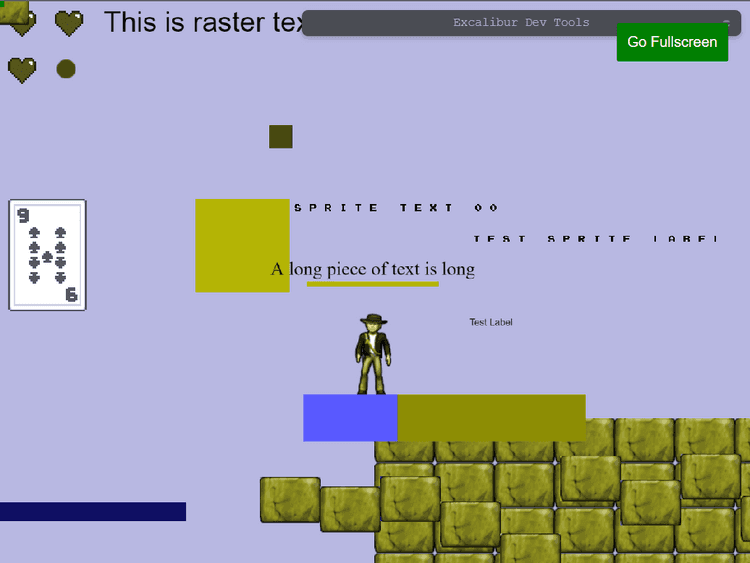PostProcessors
PostProcessors are a way to quickly modify every pixel on the screen with WebGL fragment shaders. This can be useful to give your game a certain aesthetic or effect.
Color Blindness
Choosing colors that are friendly to players with color blindness is an important consideration when making a game.
There is a significant portion of the population that has some form of color blindness, and choosing bad colors can make your game unplayable.
The three most common forms of color blindness can be simulated or corrected. By default the ColorBlindnessPostProcessor corrects. The algorithm is originally sourced from http://www.daltonize.org/.
Original
Here is the original game with no postprocessing applied.
Simulation
const game = new ex.Engine({...});
// simulate deuteranope
const colorblind = new ex.ColorBlindnessPostProcessor(ex.ColorBlindnessMode.Deuteranope, true);
game.graphicsContext.addPostProcessor(colorblind);
Correction
const game = new ex.Engine({...});
// correct deuteranope
const colorblind = new ex.ColorBlindnessPostProcessor(ex.ColorBlindnessMode.Deuteranope);
game.graphicsContext.addPostProcessor(colorblind);
Custom Shader based Post Processors
Post processors can also be use to produce some interesting custom effects.
There is a helper class ScreenShader to help build shaders for post processing. The only things that come predefined are the:
v_texcoordrepresenting the current UV from [0, 1]u_texturewhich is the texture representing the screen pixels
In this example we can make the entire game gray scale:
class GrayScalePostProcessor implements ex.PostProcessor {
private _shader: ex.ScreenShader
initialize(gl: WebGLRenderingContext): void {
this._shader = new ex.ScreenShader(
`#version 300 es
precision mediump float;
// our texture
uniform sampler2D u_image;
// the texCoords passed in from the vertex shader.
in vec2 v_texcoord;
out vec4 fragColor;
void main() {
vec4 tex = texture(u_image, v_texcoord);
float avg = 0.2126 * tex.r + 0.7152 * tex.g + 0.0722 * tex.b;
fragColor = vec4(avg, avg, avg, 1.0);
}`
)
}
getLayout(): ex.VertexLayout {
return this._shader.getLayout()
}
getShader(): ex.Shader {
return this._shader.getShader()
}
}


